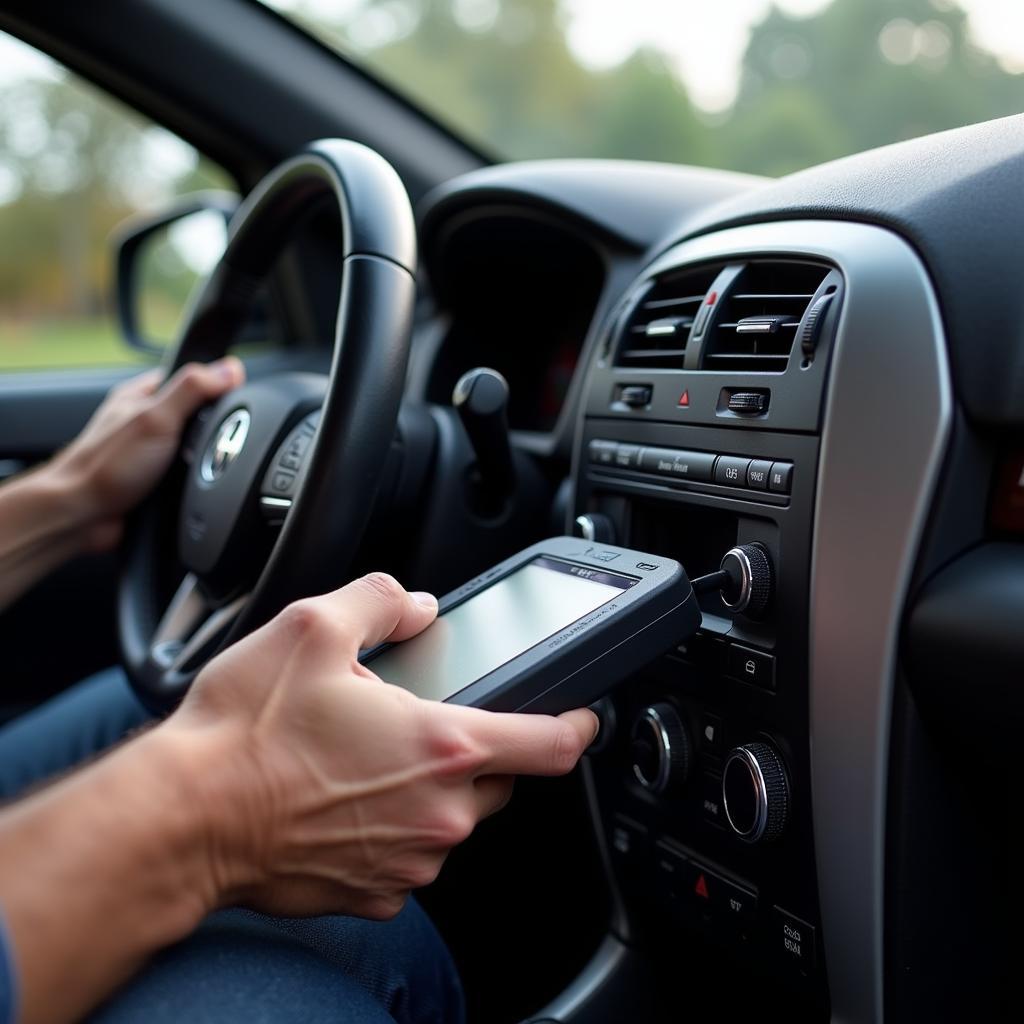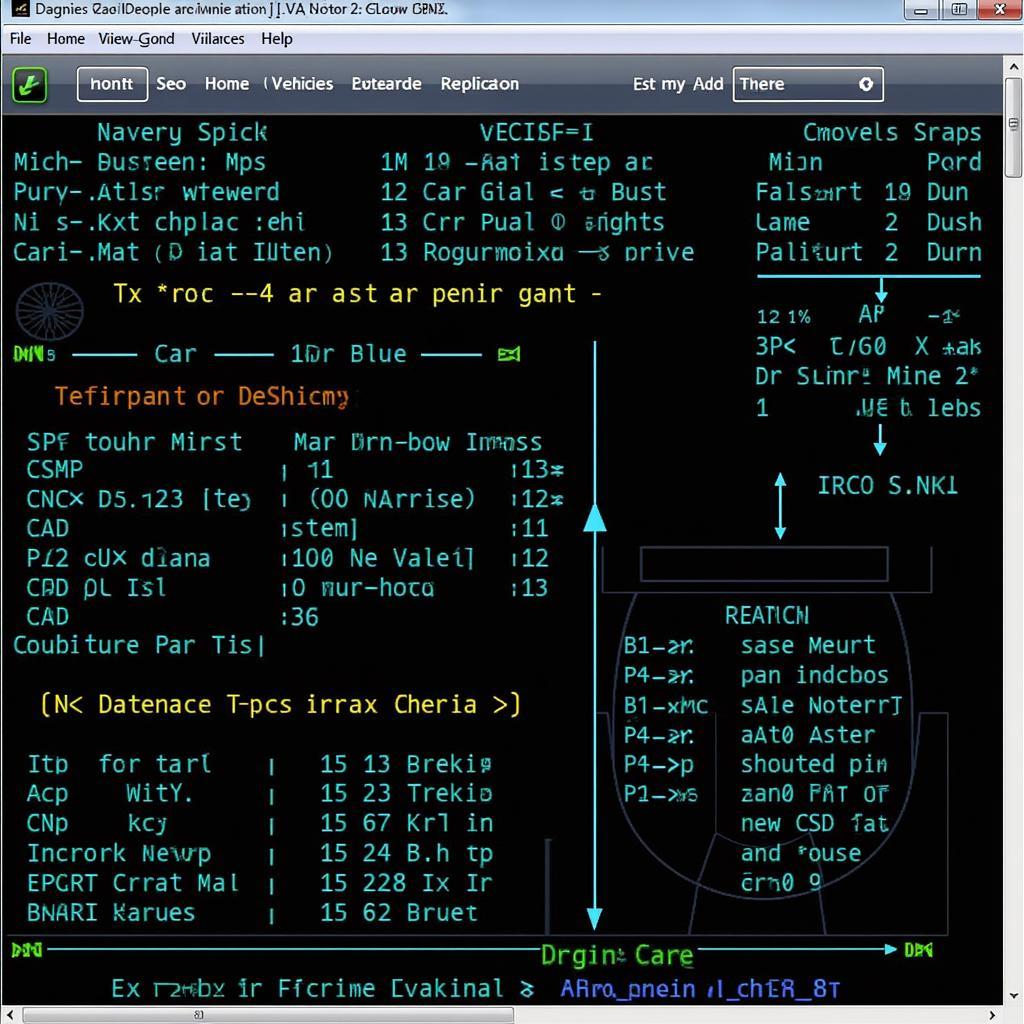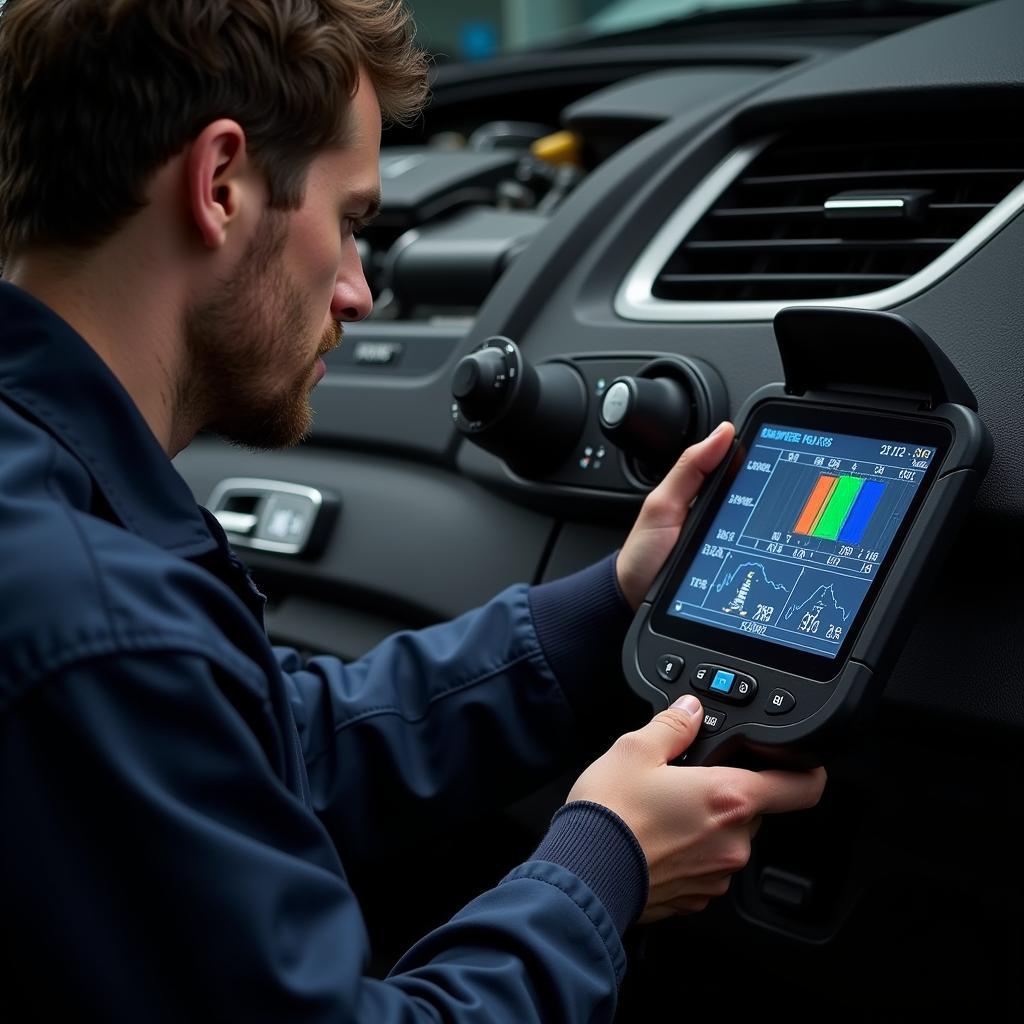A full car diagnostic scan is essential for identifying issues within your vehicle’s systems, but many car owners wonder: just how long does this process take? While there’s no one-size-fits-all answer, this article will break down the factors influencing diagnostic duration and provide realistic timeframes to expect.
 Full Car Diagnostic Process
Full Car Diagnostic Process
Factors Influencing Car Diagnostic Time
Several factors contribute to the time required for a full car diagnostic, including:
- Complexity of the Problem: Diagnosing a simple sensor issue will take significantly less time than pinpointing the root cause of intermittent electrical problems or complex engine malfunctions.
- Type of Diagnostic Scan: A basic OBD-II scan for trouble codes might only take a few minutes. However, a comprehensive scan delving into specific systems like the transmission, ABS, or airbag system will naturally require more time.
- Mechanic’s Skill and Experience: An experienced mechanic familiar with your car’s make and model will likely diagnose issues faster than someone less experienced.
- Diagnostic Equipment: Advanced diagnostic tools can speed up the process by providing more detailed information and faster data retrieval.
 Car Diagnostic Software Interface
Car Diagnostic Software Interface
Typical Timeframes for Car Diagnostics
While estimations vary, here’s a general guideline for different diagnostic scenarios:
- Basic OBD-II Scan: 15 minutes to 1 hour
- System-Specific Scan: 30 minutes to 2 hours
- Comprehensive Diagnostic Scan: 1 to 3 hours (or longer, depending on the complexity of the problem)
It’s crucial to remember that these are just estimates. Your mechanic should be able to give you a more accurate timeframe based on your car’s specific symptoms and their assessment.
What Does a Car Diagnostic Involve?
A car diagnostic involves connecting a specialized scanner to your car’s onboard computer system, typically through the OBD-II port. This scanner reads stored trouble codes, which are like digital breadcrumbs indicating potential issues.
where to but diagnostic for rrading car codes
Beyond reading codes, mechanics use diagnostics to:
- Monitor live data streams: This allows them to observe sensor readings in real-time, helping them identify anomalies.
- Run system tests: These tests assess the functionality of specific components and systems.
- Access technical service bulletins (TSBs): TSBs are documents released by manufacturers outlining known issues and repair procedures.
 Mechanic Analyzing Diagnostic Results
Mechanic Analyzing Diagnostic Results
Expert Insight
“Many car owners underestimate the value of regular car diagnostics,” says John Miller, a seasoned automotive technician with over 20 years of experience. “Early detection through diagnostics can prevent minor issues from escalating into major repairs down the line.”
Is a Car Diagnostic Worth It?
While it might seem like an added expense, a car diagnostic is a valuable investment in your vehicle’s health and your peace of mind.
[what car diagnostics is best](https://diagfixpro.com/what-car diagnostics-is-best/)
Here’s why:
- Accurate Issue Identification: Diagnostics help pinpoint the exact cause of a problem, preventing unnecessary guesswork and potentially costly repairs.
- Early Detection: Diagnostics can uncover hidden issues before they become major headaches, saving you from costly repairs and potential breakdowns.
- Increased Safety: By identifying potential safety concerns early on, diagnostics contribute to safer driving conditions for you and your passengers.
Conclusion
The time required for a full car diagnostic can vary significantly. While a quick scan might only take a few minutes, a complex issue could require several hours of analysis and testing. The key takeaway is that car diagnostics are an invaluable tool for maintaining your vehicle’s health, ensuring optimal performance, and promoting safety on the road.

Leave a Reply